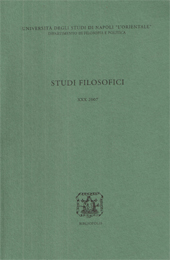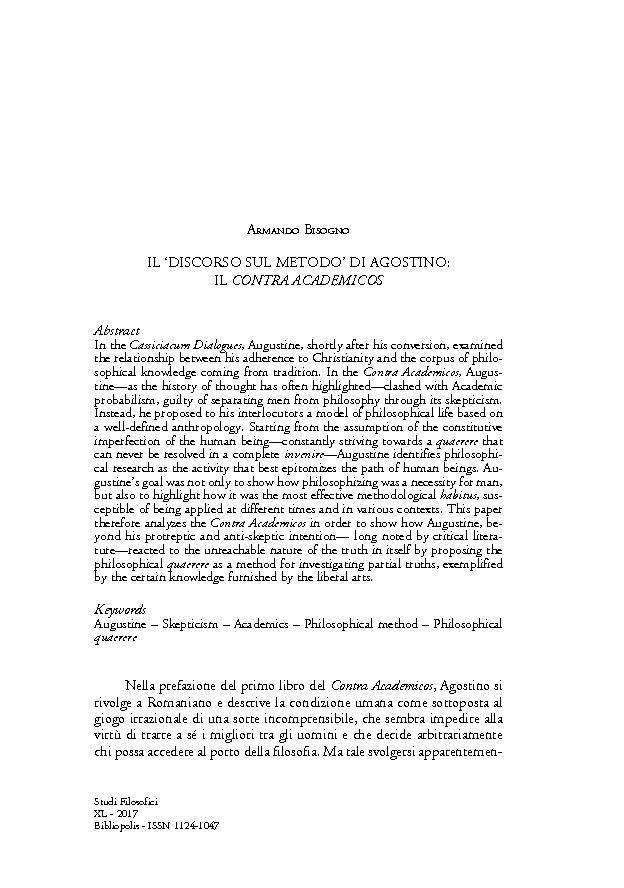Il discorso sul metodo di Agostino : il Contra Academicos
P. 27-47
In the Cassiciacum Dialogues, Augustine, shortly after his conversion, examined the relationship between his adherence to Christianity and the corpus of philosophical knowledge coming from tradition. In the Contra Academicos, Augustine—as the history of thought has often highlighted—clashed with Academic probabilism, guilty of separating men from philosophy through its skepticism. Instead, he proposed to his interlocutors a model of philosophical life based on a well-defined anthropology. Starting from the assumption of the constitutive imperfection of the human being—constantly striving towards a quaerere that can never be resolved in a complete invenire—Augustine identifies philosophical research as the activity that best epitomizes the path of human beings. Augustine's goal was not only to show how philosophizing was a necessity for man, but also to highlight how it was the most effective methodological habitus, susceptible of being applied at different times and in various contexts.
This paper therefore analyzes the Contra Academicos in order to show how Augustine, beyond his protreptic and anti-skeptic intention— long noted by critical literature—reacted to the unreachable nature of the truth in itself by proposing the philosophical quaerere as a method for investigating partial truths, exemplified by the certain knowledge furnished by the liberal arts.[Publisher's text]
-
Artikel aus derselben Ausgabe (einzeln erhältlich)
-
Informationen
DOI: 10.1400/257839
ISSN: 2038-6613



